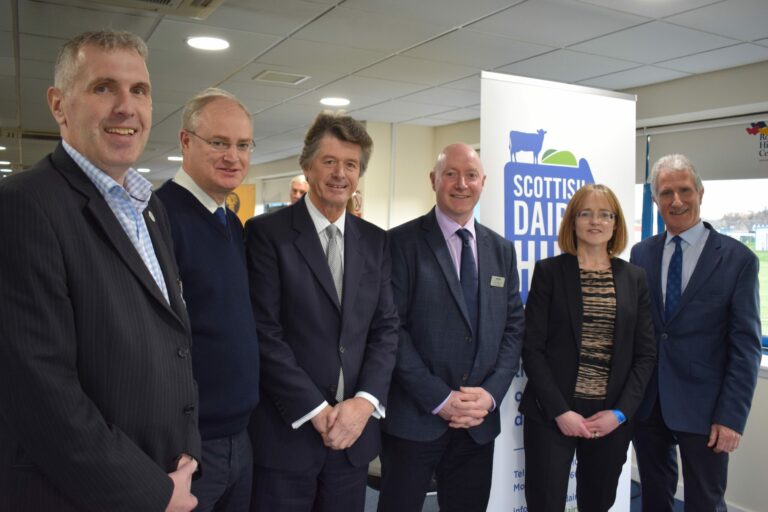Ensuring the long-term sustainability of the dairy sector in Scotland was the subject dominating the Scottish Dairy Hub debate at this year’s AgriScot.
The event attracted a huge audience, with over 120 people posing questions to AHDB Dairy Chair Gwyn Jones, First Milk CEO Shelagh Hancock, independent Dairy Analyst and Journalist Chris Walkland and NFUS Vice President Gary Mitchell.
Stuart Martin, Manager of the Dairy Hub, says: “One of the mantras at the hub is to ensure we make a positive difference to the dairy industry in Scotland in everything we do, and therefore it was fantastic to see a packed room with people from all walks of the sector participate in the event.”
Debate Chair Ken Rundle expertly fielded a varied range of questions from milk price volatility, exports, improving business competitiveness and productivity to encouraging more young people into the industry. One common theme was developing business resilience to cope with the potential challenges of Brexit.
The panel agreed there were tough times were ahead, but there was not always agreement on how best to respond. Some argued strongly that increasing exports was the way forward, citing the Irish as an example, however Gwyn Jones noted that while exporting was key, opportunities abroad could be complicated by Brexit. He was adamant that there was a lot more to be achieved on the home market, through displacing current imports with British products.
The debate of course came back to milk prices and contracts a number of times with observations that the fragmentation of the Scottish sector meant that the power balance was heavily weighted in favour of retailers. One way to improve that would be to work more collaboratively.
The audience were advised a number of times to concentrate on those factors within their control, for example through better understanding their costs of production and improving their systems.
Gwyn summarised the situation thus: “We produce a commodity, I don’t like to describe it like that but that is was it is, a perishable commodity.
“It is difficult but we have to deal with our market and our system and we will only survive the challenges ahead through running efficient and competitive businesses.”


